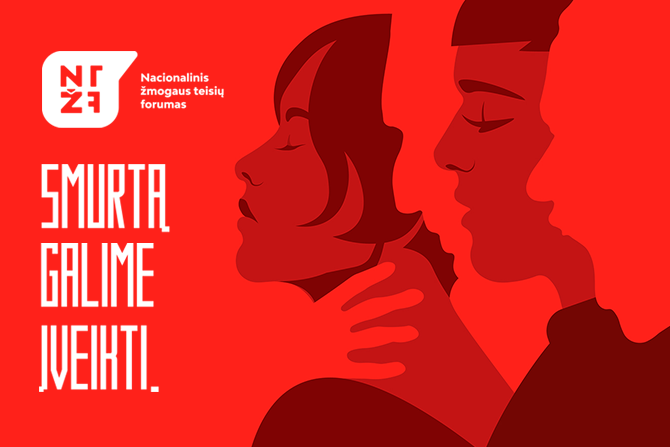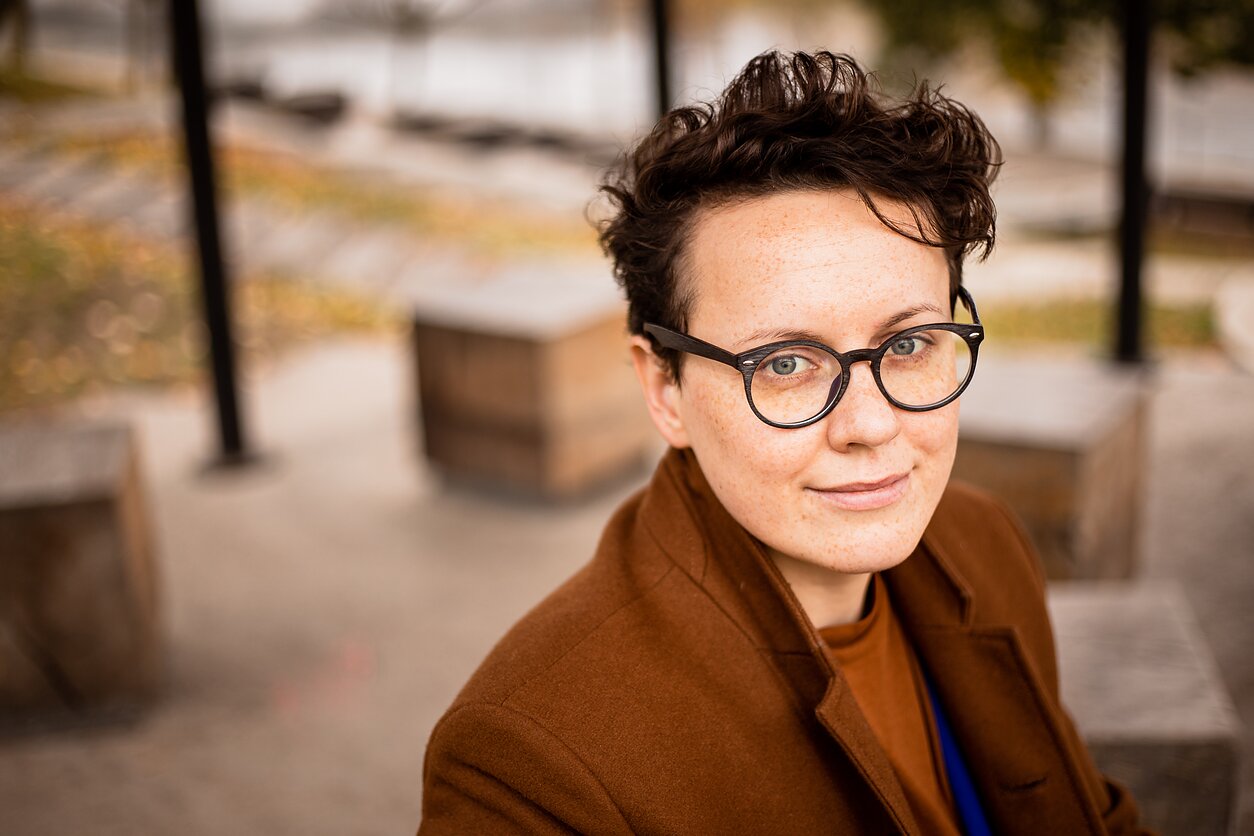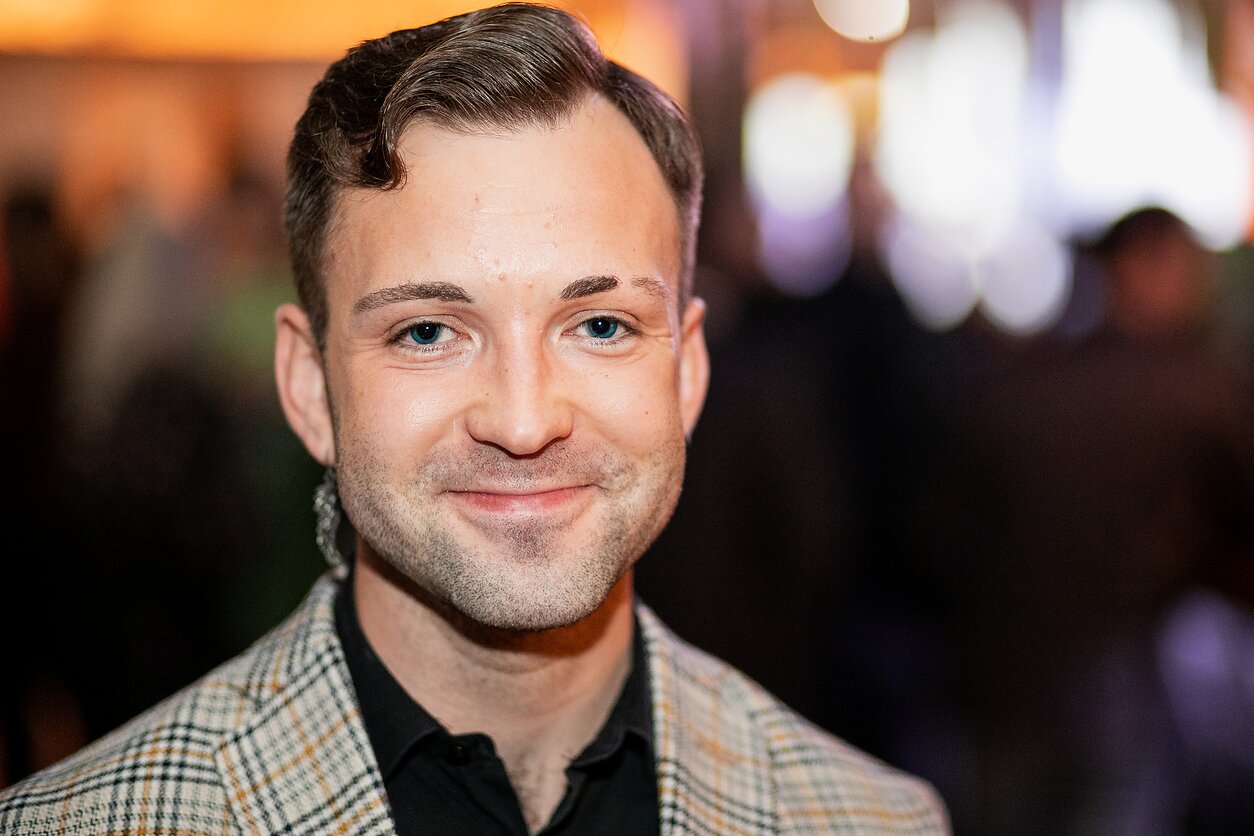National Forum on Human Rights to Focus on Various Forms of Violence

On December 10, the Human Rights Day, the 4th National Forum on Human Rights (NFHR) will be organised at the Martynas Mažvydas National Library of Lithuania and online. The event invites the public to discuss the current human rights situation in Lithuania, which is improving in some areas, but still does not receive the necessary attention from decision-makers in others.
Information about the discussants and the program of the event can be found here.
According to Jūratė Juškaitė, head of the Lithuanian Human Rights Center, the program of the forum covers a wide range of human rights issues. “New unheard-of ideas and attitudes will be presented to both professionals in the field and those who are interested in human rights or are new to this field: from the right of the Romuva religious community to be recognized by the state, and the migration and maternity experiences of women with disabilities to the management of epidemics in democratic societies,” says Juškaitė, adding that the forum not only aims to become a space for discussion, but every year it also presents a dedication to an important anniversary or human rights issue.
In 2021, the NFHR is dedicated to the 10th anniversary of the signing of the Council of Europe Convention on preventing and combating violence against women (the Istanbul Convention). This year’s motto is “We can stop violence.”
 Jūratė Juškaitė. Photo by J. Stacevičius, LRT
Jūratė Juškaitė. Photo by J. Stacevičius, LRT
According to Juškaitė, it is important to re-open the issue of ratification of the Convention in Lithuania. “This document would oblige the state to make a qualitative leap in the field of gender-based violence, a leap of which we are in great need according to statistics on violence and homicide,” says the head of the Lithuanian Human Rights Center.
According to VMU professor Milda Ališauskienė, violence is an epidemic that affects many modern societies. It is still difficult to recognize it in everyday life because it can be psychological, economic, institutional, emotional, etc. “Many people experience violence regardless of their beliefs, religious beliefs, social status, age, sex or gender identity. More than a hundred professionals, human rights experts and defenders, scholars, politicians, lawyers, psychologists and other participants will discuss violence and other human rights-related topics at this year’s National Forum on Human Rights,” says Professor Ališauskienė, Chairwoman of the Organising Committee of NFHR, also adding that the discussants of the forum include Tomas Vytautas Raskevičius, Edita Žiobienė, Dalia Leinartė, Birutė Sabatauskaitė, Dainius Pūras, Rasa Račienė, Jonas Ruškus, Egidijus Kūris, Linas Slušnys, Dainius Žalimas and many other famous faces who will gather on the occasion of Human Rights Day to discuss and seek solutions to human rights problems in Lithuania.
 Milda Ališauskienė. Photo by E. Blaževič, LRT
Milda Ališauskienė. Photo by E. Blaževič, LRT
The discussions will address the possibilities for ratification of the Istanbul Convention in Lithuania, the problem of hatred and bullying, migrant crisis, ethnic and religious issues, social security issues, the pursuit of democracy in Belarus and many other topics relevant to Lithuania.
Tomas Vytautas Raskevičius, Chair of Seimas Committee on Human Rights, maintains that NFHR enables representatives of politics, non-governmental organizations and academia to discuss the most important and relevant human rights issues in our country. “Human rights issues on the political agenda are often held hostage to certain fears, prejudices and fake news. The need for an objective debate, based on expert insights and real people’s experiences, is particularly relevant today. And this mission is carried out by the National Forum on Human Rights,” says Raskevičius.
 Tomas Vytautas Raskevičius. Photo by D. Umbrasas, LRT
Tomas Vytautas Raskevičius. Photo by D. Umbrasas, LRT
This year, for the first time, Lithuania’s regions, namely Lazdijai, Joniškis, Kėdainiai, Utena and Klaipėda distric, will be included in the discussions of the National Forum on Human Rights. These regions will participate in the discussions online and interactively via telebridge, express their opinions, share experiences and ask questions as if they were physically present at the Martynas Mažvydas National Library of Lithuania.
People from other Lithuanian cities will be able to watch the live broadcast of the discussions of the entire forum at https://nztf.lt/ or lrt.lt. The discussions will include translation to Lithuanian sign language and from/to English.
Organizers of the National Forum on Human Rights: Vytautas Magnus University (VMU), Ministry of Foreign Affairs of the Republic of Lithuania, Coalition of Human Rights Organizations, Office of the Equal Opportunities Ombudsperson, Lithuanian Disability Organizations Forum, Seimas Committee on Human Rights, Seimas Ombudsmen’s Office of the Republic of Lithuania, and Children’s Rights Ombudsman Institution.
Organizational partners: Martynas Mažvydas National Library of Lithuania, Royal Norwegian Embassy, Lithuanian National Anti Poverty Network, Freedom House, MO Museum, Utena Education centre, Community Initiative Centre, Joniškis District Municipality, Lazdijai Education Center, and Klaipeda District Education Centre.
Main sponsors: project “Priority in the Welfare State: Human Rights”, part of the Active Citizens Fund financed by the EEE Financial Mechanism, Friedrich Ebert Foundation, Ministry of Social Security and Labour of the Republic of Lithuania, Departament for the Affairs of the Disabled, and Rights, Equality and Citizenship Programme of the European Union.












